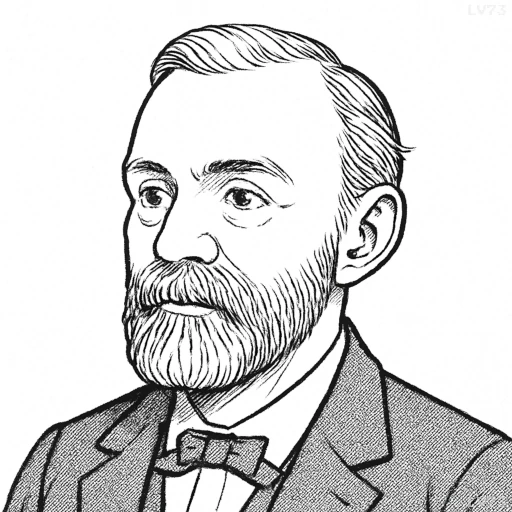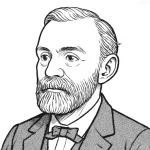“I am a misanthrope and yet utterly benevolent, have more than one screw loose yet am a super-idealist who digests philosophy more efficiently than food.”

- October 21, 1833 – December 10, 1896
- Born in Sweden
- Inventor, chemist, businessman
table of contents
Quote
“I am a misanthrope and yet utterly benevolent, have more than one screw loose yet am a super-idealist who digests philosophy more efficiently than food.”
Explanation
This self-reflective statement by Alfred Nobel encapsulates the complexity of his personality and intellectual pursuits. Nobel presents himself as a paradox—a misanthrope who harbors a deep concern for humanity, a flawed individual driven by lofty ideals, and a thinker who prioritizes abstract concepts over mundane needs. This duality reflects a man profoundly aware of his contradictions, which were likely fueled by his experiences as a scientist, inventor, and philanthropist.
Historically, Nobel lived during an era of rapid industrialization and scientific discovery, which brought both progress and ethical dilemmas. His invention of dynamite, while transformative for construction and industry, became a tool of war, likely deepening his misanthropy. Yet, his establishment of the Nobel Prizes demonstrates his enduring hope to advance human knowledge, peace, and culture, showcasing his benevolence and super-idealism.
In modern times, this quote resonates with individuals who navigate similar contradictions, such as striving for societal betterment while feeling alienated by its flaws. For example, activists and visionaries often balance their disillusionment with society against their unwavering pursuit of a better world. Nobel’s acknowledgment of his own complexities reminds us that embracing our contradictions can fuel creativity, philosophical inquiry, and meaningful contributions to humanity.
Would you like to share your impressions or related stories about this quote in the comments section?
